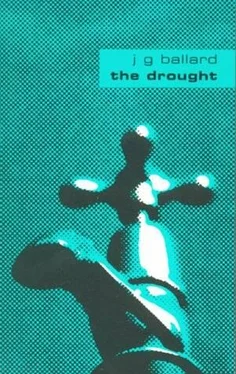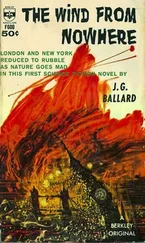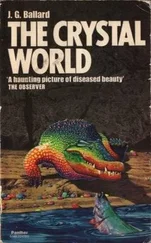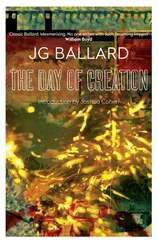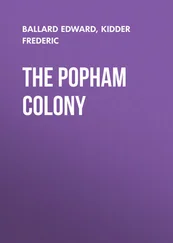By dusk they had built a semicircular embankment three feet high around the tent and cart, held together by the pieces of metal. Inside this small burrow they sat together, cooking their meal at a fire of tinder and driftwood. The smoke wreathed upwards through the girders, drifting away into the cold night air.
While the two women prepared their meal, Ransom and Philip Jordan climbed up onto the bridge. The dried and splitting hulks of the passenger coaches sat between the cantilevers, the stars shining through the rents in their roofs. Philip began to tear armfuls of the dry wood from the sides of the coaches. Rotted suitcases and haversacks lay in the dust by the tracks. Ransom walked forward along the line to the locomotive. He climbed into the cabin and searched for a water tap among the rusted controls. He leaned his elbows on the sill of the driver's window and for half an hour looked out along the track as it crossed the bridge and wound away over the desert.
At night, as he slept, he was awakened by Philip Jordan. "Doctor! Listen!"
He felt the young man's hand on his shoulder. He looked up to see the glowing embers of the fire reflected in his eyes as he stared across the river. "What is it?"
Far away to the northwest, where the dried trees and husks of the desert merged into the foothills of the night, an animal howled wearily. Its lost cries echoed faintly among the steel pillars of the bridge, reverberating across the white river that lay beside them, as if trying to resurrect this longdormant skeleton of the dead land.
At dawn the next morning they dismantled the camp and loaded their equipment into the cart. The disturbed night, and the earlier appearance of the sun each morning, delayed their departure. Philip Jordan paced around the cart as he waited for Mrs. Quilter, tapping his spear restlessly against the spokes of the wheel. In the sunlight his dark beaked face gave him the appearance of a nervous desert nomad, scion of some dwindling aristocratic tribe.
"Did you hear the sounds?" he asked Catherine when she appeared. "What was it-a lion or a panther?"
Catherine shook her head. She had loosened her hair, and the long tresses lifted about her head in the cool air. Unlike Philip, the sounds of the night seemed to have calmed her. "Neither. A dog of some sort. Perhaps a wolf. It was far away."
"Not more than five miles." Philip climbed up on to the remains of the camp and peered across the riverbed. "We'll be on it by noon. Keep your eyes open." He glanced sharply at Catherine, and then looked down at Ransom, who was squatting by the fire, warming his hands over the embers. "Doctor?"
"Of course, Philip. But I shouldn't worry. After ten years they'll be more frightened of us than we are of them."
"That's wishful thinking, doctor." To Catherine, he added tersely as he strode down the embankment: "On the cliff we saw a _lion_."
When Mrs. Quilter was ready, he tried to persuade her to take her seat on the cart Although she had slept badly and was already becoming overtired by the journey, Mrs. Quilter insisted on walking for the first hour. She moved along at a snail's pace, her tiny booted feet advancing over the cracked sand like timorous mice.
Philip strode beside her, barely controlling his impatience, steering the cart with one hand. Now and then Catherine would take Mrs. Quilter's arm, but she insisted on making her own way, pausing to mumble to herself and shake her head.
Ransom took advantage of her slow pace to stroll away across the surface of the river, picking among the windblown debris that had spilled down onto the bank-windmill blades and the detached doors of cars. The cold morning air refreshed him, and he was glad that Mrs. Quilter was slowing the party's progress. The few minutes alone allowed him to collect the stray thoughts that had preoccupied him more and more during their advance up the river. As he pondered on the real reasons for their journey, he had begun to sense its true inner compass. At first Ransom had assumed that he himself, like Philip Jordan and Mrs. Quilter, was returning to the past, to pick up the frayed ends of his previous life; but he now felt that the white deck of the river was carrying them all into the opposite direction, forward into zones of time future where the unresolved residues of the past would appear smoothed and rounded, muffled by the detritus of time, like images in a clouded mirror. Perhaps these residues were the sole elements contained in the future, and would have the bizarre and fragmented quality of the debris through which he was now walking, but nonetheless they would all be merged and resolved in the soft dust of the drained bed.
"Philip! Dr. Ransom!" Catherine Austen had stopped some twenty yards behind the others and was pointing down the river behind them.
A mile away, where the bridge crossed the river, the empty train was burning briskly in the sunlight, billows of smoke pouring upwards into the air. The flames moved from one coach to the next, the bright embers falling between the tracks onto the site of the camp below. Within a few minutes the entire train had been engulfed. The sky to the south was stained by the dark smoke.
Ransom walked over to the others. "There's a signal, at least," he said quietly. "If there's anyone here they'll know we've arrived."
Philip Jordan's hands fretted on the shaft of his spear. "It must have been the fire. Didn't you put it out, doctor?"
"Of course. An ember must have blown up onto the track during the night."
They watched the fire burn itself out among the last coaches on the approach lines to the bridge. Collecting himself, Philip turned to Mrs. Quilter and motioned her toward the cart.
Ransom took his place at the shaft They moved off at a brisk pace, all three pushing the cart along. Over his shoulder, when they reached a bend in the river, Ransom looked back at the burning bridge. The smoke still drifted up from the train, its curtain sealing off the south behind them.
By noon they had covered ten miles more. They stopped to prepare their midday meal. Pleased with their progress, Philip Jordan helped Mrs. Quilter down from the cart and set up the awning for her, trailing it from the hull of an old lighter.
After the meal Ransom strolled away along the bank. Cloaked by the sand, the remains of wharfs and jetties straggled past the hulks of barges. The river widened into a small harbor. Ransom climbed a wooden quay and walked past the leaning cranes through the outer streets of a small town. The facades of half-ruined buildings and warehouses marked out the buried streets. He passed a hardware store and then a small bank, its doors shattered by ax blows. The burntout remains of a bus depot lay in a heap of smashed glass plate and dulled chromium.
A large bus stood in the court, its roof and sides smothered under the sand, in which the eyes of the windows were set like mirrors of an interior world. Ransom ploughed his way down the center of the road, passing the submerged forms of abandoned cars. The succession of humps, the barest residue of identity, interrupted the smooth flow of the dunes down the street. He remembered the cars excavated from the quarry on the beach. There they had emerged intact from their ten-year burial, the scratched fenders and bright chrome mined straight from the past. By contrast, the half-covered cars in the street were like idealized images of themselves, the essences of their own geometry, the smooth curvatures like the eddies flowing out of some platonic future.
Submerged by the sand, everything had been transvalued in the same way. Ransom stopped by one of the stores in the main street. The sand blowing across it had reduced the square glass plate to an elliptical window three feet wide. Peering through it, he saw a dozen faces gazing out at him from the dim light with the waxy expressions of plastic mannequins. Their arms were raised in placid postures, the glacé smiles as drained as the world around them.
Читать дальше
Конец ознакомительного отрывка
Купить книгу
